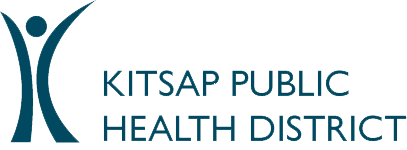To report a notifiable condition, call the reporting line at 360-728-2235. You can also fax the positive lab result or a completed Reportable Disease Fax Form to the Health District’s confidential fax 360-813-1168.
Additional Resources
- Notifiable Conditions poster
- Confidential HIV/AIDS Adult Case Report
- Inter-Facility Infection Prevention and Safety Form
- Reportable Asthma Information
- Confidential Report of Work Related Asthma
- Blood Lead Testing
Report Immediately
Animal Bites (suspected human exposure to rabies)
Anthrax
Botulism (foodborne, wound, infant)
Burkholderia mallei (Glanders) and pseudomallei (Melioidosis)
Cholera
Diphtheria
Disease of suspected bioterrorism origin
Domoic acid poisoning E. coli (Shiga toxin-producing infections including but not limited to E. coli O157:H7)
Emerging condition with outbreak potential
Haemophilus influenzae, invasive disease only (children < age 5)
Influenza, novel or untypable strain
Measles (rubeola) acute disease only
Meningococcal disease (invasive)
Monkeypox Outbreaks (suspected foodborne or waterborne)
Paralytic shellfish poisoning
Plague
Poliomyelitis
Rabies (confirmed human or animal)
Rabies (suspected human exposure)
Rubella (including congenital rubella syndrome)
SARS
Smallpox
Suspected institutional outbreak of any illness(e.g., influenza-like illness, gastro-intestinal symptoms)
Tuberculosis
Tularemia
Vaccinia transmission
Viral hemorrhagic fever
Yellow fever
Report Within 24 Hours
Brucellosis (Brucella species)
Hantavirus pulmonary syndrome
Hepatitis A, acute
Hepatitis B, acute
Hepatitis E, acute
Legionellosis
Leptospirosis
Listeriosis
Mumps (acute disease only)
Pertussis
Psittacosis
Q fever
Relapsing fever (borreliosis)
Salmonellosis Shigellosis
Vancomycin-resistant
Staphylococcus aureus
Vibriosis
Yersiniosis
Other rare disease of public health significance
Unexplained critical illness or death
Report Within 3 Business Days
Acquired immunodeficiency syndrome (AIDS)
Arboviral diseases (West Nile virus, dengue, Eastern & Western equine encephalitis, St Louis encephalitis, Powassan)
Campylobacteriosis
Chancroid Chlamydia trachomatis infection
Cryptosporidiosis
Cyclosporiasis
Giardiasis
Gonorrhea
Granuloma inguinale
Hepatitis B surface antigen positive pregnant women
Hepatitis C, acute
Hepatitis D (acute, chronic)
Herpes simplex, neonatal and genital (initial infection only)
HIV infection
VImmunization reactions (severe, adverse)
Influenza-associated death (lab confirmed)
Lyme disease
Lymphogranuloma venereum
Malaria Prion disease
Syphilis (including congenital)
Tetanus
Trichinosis
Varicella-associated death
Report Within 7 Business Days
Tuberculosis infection, latent (positive TB skin test or interferon-gamma release assay e.g., QuantiFERON®-TB Gold)
Report Monthly
Hepatitis B, chronic (initial diagnosis/previously unreported cases)
Hepatitis C, chronic (initial diagnosis only)
Why report communicable diseases?
Reporting benefits the patient by:
- Helping to prevent re-infection by contacts
- Helping to assure compliance with medical therapy
- Providing health education and resources to patient and contacts
Reporting benefits the provider by:
- Helping to assure patient compliance with prescribed regimens
- Assisting the provider to educate the patient and contacts
- Decreasing repeat visits for managed care patients
Reporting benefits the public by:
- Preventing the spread of disease through case investigation
- Providing reliable information for surveillance
- Identifying trends in disease
- Identifying geographical and demographical trends
- Rapid identification of health threats



